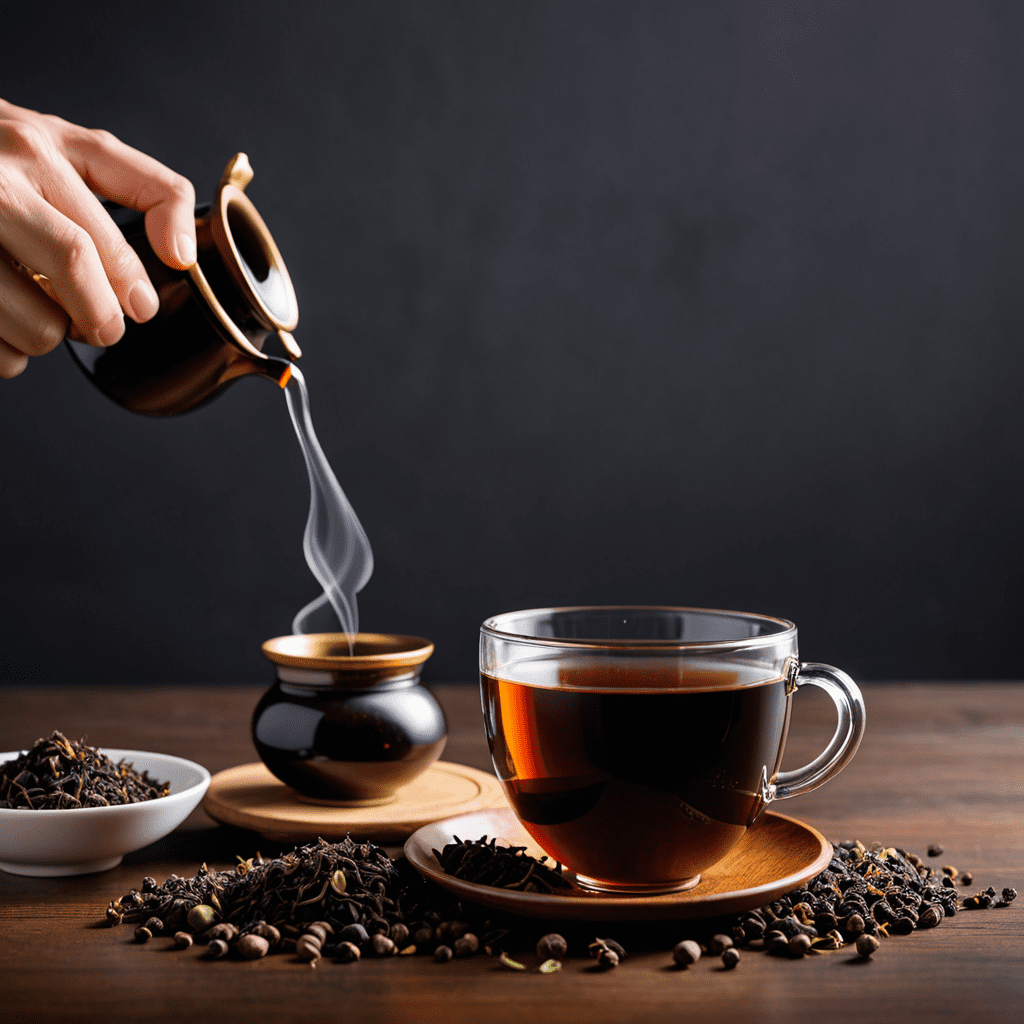Ceylon Tea Rituals: Embracing the Art of Slow Living
Introduction: The Essence of the Ceylon Tea Experience
In the tapestry of global tea culture, Ceylon tea stands apart as a beacon of excellence and tradition. Hailing from the lush, verdant hills of Sri Lanka, formerly known as Ceylon, this aromatic brew embodies the essence of slow living and mindfulness. From the meticulous tea-making ritual to the communal joy of teatime, Ceylon tea offers a sensory journey that nourishes the body, mind, and soul.
The Ritual of Tea-Making: A Journey of Mindfulness
The art of preparing Ceylon tea is imbued with a deep sense of reverence and mindfulness. Each step of the process, from carefully measuring the tea leaves to pouring the freshly brewed liquid into delicate cups, is performed with meticulous attention to detail. As the hot water infuses the tea leaves, releasing their captivating aroma, the tea-maker enters a state of tranquility, allowing the worries of the day to melt away.
The Origins of Ceylon Tea: A Legacy of Excellence
The history of Ceylon tea is intertwined with the rich cultural heritage of Sri Lanka. Legend has it that tea plants were first brought to the island by a Buddhist monk in the 19th century. Over time, the tea industry flourished, becoming an integral part of the country's economy and identity. Today, Ceylon tea is renowned for its distinctive taste, aroma, and health-promoting properties, earning it a place among the world's most celebrated teas.
The Art of Tea Tasting: Exploring the Nuances of Flavor
Savoring a cup of Ceylon tea is an experience that engages all the senses. The rich, amber-colored liquid holds a complex symphony of flavors, from delicate floral notes to hints of spice and citrus. As the tea is sipped, its nuanced character unfolds on the palate, revealing hidden layers of depth and complexity. Tea enthusiasts delight in the art of tea tasting, exploring the subtle variations in flavor that distinguish different varieties of Ceylon tea.
The Communal Aspect of Teatime: Fostering Connections
In Sri Lanka, teatime is more than just a moment to enjoy a cup of tea. It is a cherished social ritual that brings people together to connect and share stories. Whether it's a gathering of friends and family in a cozy living room or a leisurely afternoon in a tea shop, teatime provides a space for relaxation, laughter, and the forging of meaningful bonds.
Tea and Tradition: The Role of Tea in Sri Lankan Culture
In Sri Lanka, tea is more than just a beverage; it is an integral part of the country's social fabric. The tea industry has played a significant role in shaping Sri Lanka's economy and culture, and tea plantations are a common sight in the country's central highlands. Tea is also a symbol of hospitality, and it is customary to offer guests a cup of freshly brewed tea upon arrival.
The Tea Gardens of Ceylon: Where History and Nature Intertwine
The tea gardens of Ceylon are a testament to the country's rich tea heritage. These sprawling estates are home to millions of tea plants, which are meticulously cultivated and harvested by hand. Visitors to the tea gardens can take a guided tour to learn about the history of tea production in Sri Lanka and see the process firsthand.
The Ritual of Tea in the Modern World: A Haven of Tranquility
In today's fast-paced world, the ritual of tea offers a much-needed respite from the hustle and bustle. Taking time to sit down and enjoy a cup of tea can help to reduce stress, promote relaxation, and improve focus. Tea has also been shown to have a number of health benefits, including boosting the immune system and improving heart health.
The Therapeutic Benefits of Ceylon Tea: A Path to Well-being
Ceylon tea is not only delicious, but it also offers a number of therapeutic benefits. The tea is rich in antioxidants, which can help to protect the body against damage caused by free radicals. Ceylon tea has also been shown to improve digestion, reduce inflammation, and promote weight loss.
Conclusion: Embracing the Art of Slow Living through Ceylon Tea
The ritual of Ceylon tea is an invitation to slow down, relax, and connect with the present moment. By embracing the art of slow living through Ceylon tea, we can cultivate a sense of well-being and mindfulness in our daily lives. Whether we are enjoying a cup of tea alone or sharing it with loved ones, Ceylon tea offers a unique opportunity to savor the simple pleasures of life.
FAQ
- What is the difference between Ceylon tea and other teas?
Ceylon tea is a type of black tea that is grown in Sri Lanka. It is known for its distinctive taste and aroma, which is due to the unique climate and soil conditions of the island.
- How is Ceylon tea made?
Ceylon tea is made from the leaves of the Camellia sinensis plant. The leaves are picked by hand and then withered, rolled, and fermented. The fermentation process gives Ceylon tea its characteristic dark color and flavor.
- What are the health benefits of Ceylon tea?
Ceylon tea is rich in antioxidants, which can help to protect the body against damage caused by free radicals. The tea has also been shown to improve digestion, reduce inflammation, and promote weight loss.
- How can I incorporate Ceylon tea into my daily routine?
Ceylon tea can be enjoyed at any time of day. It can be drunk hot or cold, and it can be enjoyed with or without milk or sugar. Ceylon tea is also a popular ingredient in many desserts and cocktails.


